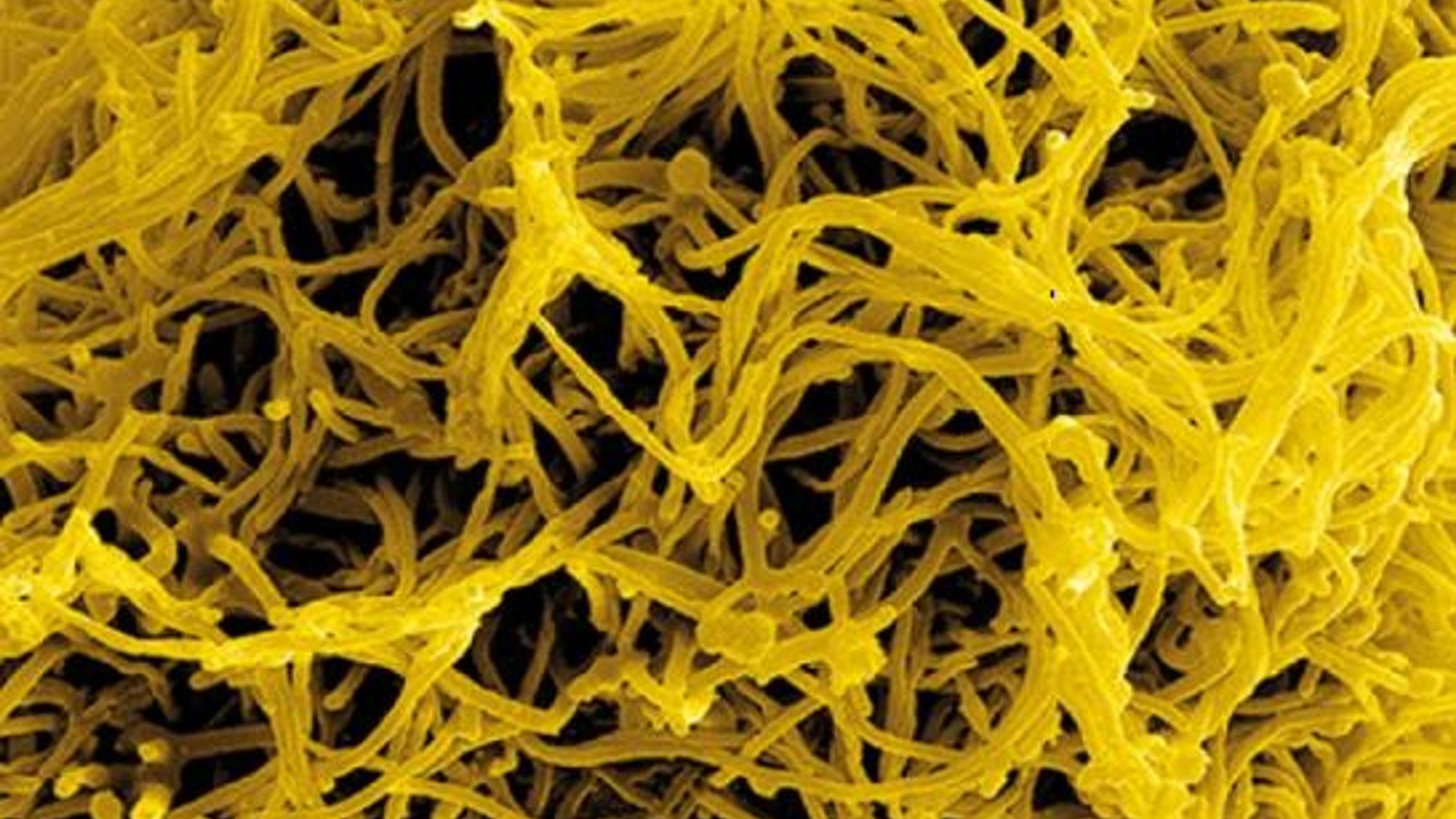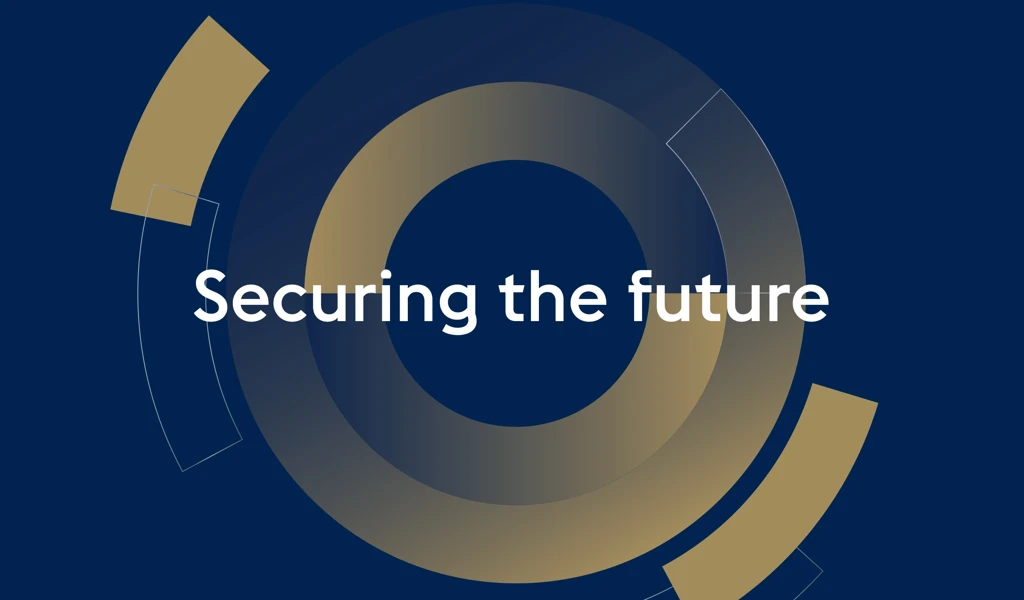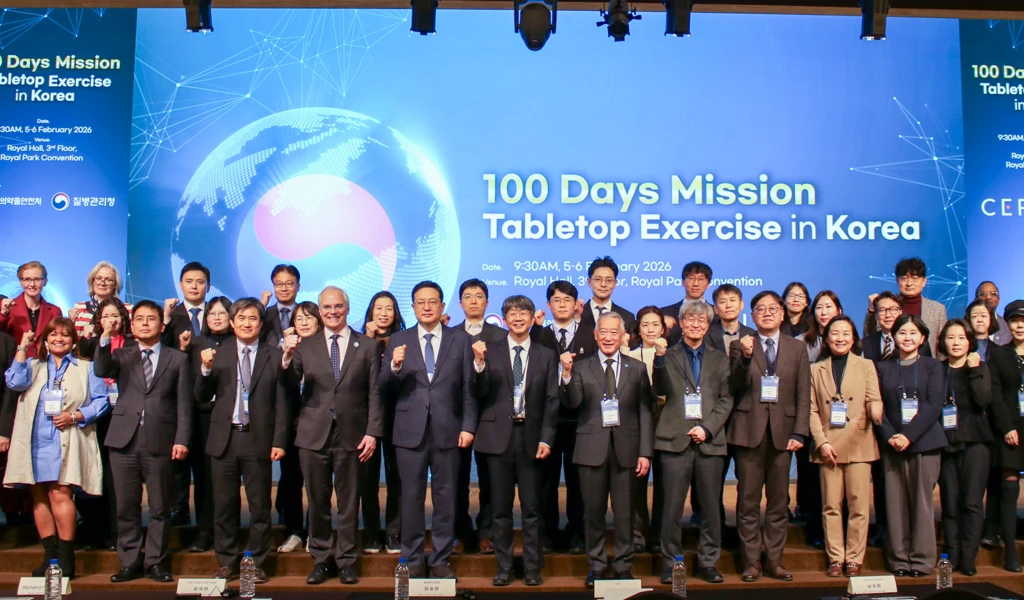A global consortium is supporting the Government of the Democratic Republic of the Congo (DRC) to introduce a second investigational Ebola vaccine as part of ongoing efforts to contain the outbreak in eastern DRC.
The large-scale clinical trial, sponsored by the London School of Hygiene & Tropical Medicine (LSHTM), is designed to help prevent the spread of the epidemic, the second worst in history, beyond the currently affected areas in eastern DRC, and if possible gather crucial information about the effectiveness of the vaccine to be better prepared to fight Ebola in the future.
The consortium is led by the DRC Ministry of Health (MOH) and Institut National de Recherche Biomédicale (INRB) and includes LSHTM, the Coalition for Epidemic Preparedness Innovations (CEPI); Médecins Sans Frontières (MSF) and Epicentre; with the Wellcome Trust contributing critical strategic guidance. Janssen Vaccines & Prevention B.V. is donating the experimental vaccine regimen for the study undertaken by the consortium.
The two-dose Ebola vaccine regimen (Ad26.ZEBOV, MVA-BN-Filo) is manufactured by the Janssen Pharmaceutical Companies of Johnson & Johnson. It was developed in collaboration with global partners, including Bavarian Nordic A/S, the U.S. Biomedical Advanced Research and Development Authority (BARDA), part of the Office of the Assistant Secretary for Preparedness and Response at the U.S. Department of Health and Human Services (HHS), the Innovative Medicines Initiative (IMI) funded through the European Union Horizon 2020 Programme, and the U.S. National Institutes of Health (NIH) at HHS.
The introduction of this second vaccine was recommended by the World Health Organization's Strategic Advisory Group of Experts on Immunization in May 2019 to complement ongoing use of another investigational vaccine, rVSV-ZEBOV, made by Merck Pharmaceuticals. The Merck vaccine is being used in a ring vaccination strategy targeting contacts of those with Ebola virus disease and other health and frontline workers at high risk.
More than 6,500 people have taken part in multiple previous and ongoing clinical trials of the Janssen Ebola vaccine regimen. The available data indicate that the vaccine is well tolerated and induces robust immune responses to the Zaire strain of Ebola virus — the cause of the DRC outbreak. At present, there are no human data on efficacy in preventing Ebola virus infection.
In 2019 researchers in Uganda began a two-year clinical trial of the vaccine among healthcare and frontline workers. The vaccine is also undergoing evaluation along with the Merck vaccine as part of a large Phase 2 randomized, placebo-controlled trial in West Africa called PREVAC that began in 2017.
Ad26.ZEBOV, MVA-BN-Filo will be offered to adults and children aged one year or older under a clinical trial protocol that aims to evaluate the effectiveness and safety of the vaccine in an outbreak setting. The regimen includes two doses (one of Ad26.ZEBOV and the second of MVA-BN-Filo), spaced two months apart.
Janssen will donate up to 500,000 doses of the vaccine regimen for those in communities near the outbreak who are considered at risk, as determined by the DRC MOH, INRB and consortium partners, taking into account the latest epidemiological data on disease spread, as well as logistical and security concerns.
Dr Eteni Longondo, Minister of Public Health, DRC, said: "As part of our Ebola response efforts, the Government of DRC plans to introduce a second experimental Ebola vaccine within a clinical trial protocol. It's vital that we intensify our efforts. That's why we're working with international partners to provide our response teams with another tool to fight and ultimately stop the spread of this terrible disease."
The study will be implemented by the INRB and MOH, supported by MSF, Epicentre, and LSHTM under the leadership of the Principal Investigator Dr Jean-Jacques Muyembe, INRB Director General and head of the DRC multisector Ebola response committee.
Dr Muyembe said: "The current Ebola outbreak is concentrated in North Kivu and Ituri provinces, areas which have had to deal with insecurity and violent conflict. This environment has complicated response efforts and led to distrust of health care workers, which has become a major problem. Therefore, effective community engagement will be absolutely critical to the successful introduction of a second Ebola vaccine. Deploying any vaccine in these circumstances is enormously challenging and must be done alongside a range of other public health measures and interventions, such as contact tracing. But building trust and confidence within affected communities must be our priority."
The trial will be sponsored by LSHTM.
Professor Daniel Bausch, Co-Principal Investigator of the trial and Director of the UK Public Health Rapid Support Team, a partnership between LSHTM and Public Health England and funded by UK aid from the UK Department of Health and Social Care, said: "We are pleased to play a major part in this important trial and look forward to working closely with the Government of the DRC, partners and local communities. The death toll from this outbreak has now reached more than 2,000, and cases of Ebola continue to be identified. Clearly, we need to use every tool at our disposal to bring this outbreak to an end.
"Deployment under study conditions of a second experimental vaccine will have the dual benefit of supporting the ongoing response and improving preparedness for future outbreaks. The two vaccines will be used in complementary fashion. The Merck vaccine will continue to be given in a ring vaccination approach to contacts of persons with Ebola and frontline workers, while the Janssen vaccine will be used to protect individuals in surrounding areas from contracting the Ebola virus."
Paul Stoffels, M.D., Vice Chairman of the Executive Committee and Chief Scientific Officer of Johnson & Johnson, said: "No single entity can solve this outbreak which has continued for more than a year. The global health community has come together in support of this initiative using Janssen's investigational Ebola vaccine regimen to help prevent its further spread. This collaboration is essential, and a great demonstration of how the public and private sectors can work together to help tackle a public health crisis."
Professor Peter Piot, Director of the LSHTM, said: "The continuing severity of the Ebola outbreak in DRC requires a concerted effort using all interventions available. I am delighted by the DRC authorities' decision to introduce the Janssen Ebola vaccine as a second investigational vaccine, providing their teams on the ground with another vital tool to fight this deadly outbreak. The DRC is a leader in innovation during Ebola outbreaks, and remains at the forefront of research and innovation in this area. LSHTM is proud to be working alongside the DRC Government, INRB and the wider consortium partners to tackle this outbreak which is now in its 15th month. The large-scale study should also strengthen global preparedness for future Ebola outbreaks."
John Johnson, Project Lead for Ebola Vaccination for MSF, said: "MSF is adding to the operations we already have in DRC by participating in this study. We see the study as an additional opportunity to offer our field experience and expertise working with communities and partners on the ground to fight against Ebola."
Richard Hatchett, CEO of CEPI, said: "In the midst of this devastating outbreak we welcome the announcement by the Government of DRC to introduce a second experimental Ebola vaccine as part of a clinical trial protocol. The Ad26.ZEBOV, MVA-BN-Filo vaccine regimen, manufactured by Janssen will be offered under a strict study protocol to help prevent the spread of the outbreak in the DRC—the second worst in history. In terms of future global health security, having more than one licensed Ebola vaccine is crucial. It will help improve future supply and enable different vaccines to be used in different outbreak settings and populations, as needed. CEPI has been working closely with the Government of DRC and a global consortium of public and private-sector partners to coordinate funding and mobilise technical and financial resources for the deployment of a second vaccine. We stand ready to support the Government of DRC and partners in any way we can to combat this Ebola outbreak."
As the Ad26.ZEBOV, MVA-BN-Filo vaccine is not licensed for use, people will be offered the vaccine regimen under a carefully monitored clinical trial protocol, which has been approved by the DRC MOH National Ethics Committee, the Ethics Committee of the School of Public Health at the University of Kinshasa and the DRC national regulatory authority, Direction de la Pharmacie et du Médicaments.
The trial will be funded by CEPI, the European Union, UK Department for International Development, Wellcome and the Paul G. Allen Family Foundation.
Notes to Editors
Janssen's investigational Ebola vaccine regimen originates from a collaborative research program with the NIH and received direct funding and preclinical services from the National Institute of Allergy and Infectious Diseases, part of NIH, under Contract Number HHSN272200800056C.
Further funding for the Ebola vaccine regimen has been provided in part with Federal funds from the Office of the Assistant Secretary for Preparedness and Response, BARDA, under Contract Numbers HHSO100201700013C and HHSO100201500008C.
The IMI, which is supported by the European Commission, provided funding through the IMI Ebola+ Program to support a number of consortia that are conducting multiple clinical trials and other vaccine development activities. The consortia funded by the IMI Initiative 2 (IMI2) Joint Undertaking are EBOVAC1 (grant nr. 115854), EBOVAC2 (grant nr. 115861), EBOVAC3 (grant nr. 800176), EBOMAN (grant nr. 115850) and EBODAC (grant nr. 115847). This Joint Undertaking receives support from the EU's Horizon 2020 research and innovation programme and the European Federation of Pharmaceutical Industries and Associations (EFPIA).
Media contacts
London School of Hygiene and Tropical Medicine
Press office (+44 (0) 207 9272 802) | [email protected]
MSF
In Goma: Gabriella Bianchi (+243 971424070) |[email protected]
In Paris MSF HQ: Francesco Segoni (+33 [0] 1 4021 2842) | [email protected]
Janssen
Corina Ramers-Verhoeven (+31 6 1530 0086) | [email protected]
CEPI
Press office (+44 7387 055 214) | [email protected]
European Union
Lucia Caudet (+32 2 295 61 82)
Marietta Grammenou (+32 2 298 35 83)
General public inquiries: Europe Direct by phone 00 800 67 89 10 11 or by email.
UK Department for International Development
Media team: 020 7023 0600 (Overseas +44 20 7023 0600)
Wellcome
Media office (+44 (0)20 7611 8866) | [email protected]
Paul G. Allen Family Foundation
Press office +1.206.342.2230 | [email protected]
About London School of Hygiene & Tropical Medicine
The London School of Hygiene & Tropical Medicine (LSHTM) is a world-leading centre for research, postgraduate studies and continuing education in public and global health. LSHTM has a strong international presence with 3,000 staff and 4,000 students working in the UK and countries around the world, and an annual research income of £140 million. LSHTM is one of the highest-rated research institutions in the UK, is partnered with two MRC University Units in The Gambia and Uganda, and was named University of the Year in the Times Higher Education Awards 2016. Our mission is to improve health and health equity in the UK and worldwide; working in partnership to achieve excellence in public and global health research, education and translation of knowledge into policy and practice. www.lshtm.ac.uk
About MSF
MSF has been active in the Ebola intervention in north-eastern DRC since its declaration on 1 August 2018. MSF teams have been involved in several activities including provision of care to confirmed and suspect Ebola patients, vaccination of frontline workers, strengthening of infection prevention and control measures and community outreach. They have also been working with numerous health facilities in North Kivu and Ituri in order to support access to general healthcare for the population during the Ebola epidemic.
About the Janssen Pharmaceutical Companies
At Janssen, we're creating a future where disease is a thing of the past. We're the Pharmaceutical Companies of Johnson & Johnson, working tirelessly to make that future a reality for patients everywhere by fighting sickness with science, improving access with ingenuity, and healing hopelessness with heart. We focus on areas of medicine where we can make the biggest difference: Cardiovascular & Metabolism, Immunology, Infectious Diseases & Vaccines, Neuroscience, Oncology, and Pulmonary Hypertension. Learn more at www.janssen.com. Follow us at @JanssenGlobal.
About Johnson & Johnson
At Johnson & Johnson, we believe good health is the foundation of vibrant lives, thriving communities and forward progress. That's why for more than 130 years, we have aimed to keep people well at every age and every stage of life. Today, as the world's largest and most broadly-based healthcare company, we are committed to using our reach and size for good. We strive to improve access and affordability, create healthier communities, and put a healthy mind, body and environment within reach of everyone, everywhere. We are blending our heart, science and ingenuity to profoundly change the trajectory of health for humanity. Learn more at www.jnj.com. Follow us at @JNJNews.
About CEPI
CEPI is an innovative partnership between public, private, philanthropic, and civil organisations launched in Davos in 2017 to develop vaccines to stop future epidemics. CEPI has received multi-year funding from Norway, Germany, Japan, Canada, Australia, and the Bill & Melinda Gates Foundation, and Wellcome. CEPI has also received single-year investments from the Governments of Belgium and the United Kingdom. The European Union provides financial support for relevant projects through their Horizon 2020 programme as well as through the European and Developing Countries Clinical Trials Partnership. CEPI has reached over US$750 million of its $1 billion funding target. Since its launch in January 2017, CEPI has announced four calls for proposals. The first call was for candidate vaccines against Lassa virus, Middle East Respiratory Syndrome coronavirus (MERS-CoV), and Nipah virus. The second call was for the development of platforms that can be used for rapid vaccine development against unknown pathogens. The third call was for candidate vaccines against Chikungunya and Rift Valley fever viruses. The fourth call is for the development of platform technologies to develop vaccines and other immunoprophylactics to rapidly respond to outbreaks of unknown pathogens. To date, CEPI has committed to investing over $456 million in vaccine development. This includes 19 vaccine candidates against its priority pathogens (six against Lassa virus, five against MERS-CoV, four against Nipah virus, two against Chikungunya, two against Rift Valley fever) and three vaccine platforms to develop vaccines against Disease X. To assess the effectiveness of these platforms 7 additional vaccine candidates are being developed (two against influenza, one against Marburg virus, two against Rabies virus, one against Respiratory Syncytial Virus, and one against yellow fever). Learn more at www.cepi.net. Follow us at @CEPIvaccines.
About the EU Horizon 2020 programme
Horizon 2020 is the biggest EU Research and Innovation programme ever with nearly €80 billion of funding available over 7 years (2014 to 2020) — in addition to the private investment that this money will attract. It extends the frontiers of human knowledge with more breakthroughs, discoveries and world-firsts, and supports Europe's competitiveness by taking great ideas from the lab to the market.
About UK Department for International Development
We lead the UK government's work to end extreme poverty. Find out more at www.gov.uk/dfid. Contact our Media Team: 020 7023 0600 (Overseas +44 20 7023 0600). Get our latest press releases, free-to-use photos, embeddable videos and case studies online For breaking news, follow us on Twitter: @DFID_UK.
About Wellcome
Wellcome exists to improve health by helping great ideas to thrive. We support researchers, we take on big health challenges, we campaign for better science, and we help everyone get involved with science and health research. We are a politically and financially independent foundation.
About the Paul G. Allen Family Foundation
Launched in 1988 by Microsoft co-founder and philanthropist Paul G. Allen and his sister Jody Allen, the Paul G. Allen Family Foundation is dedicated to changing the trajectory of some of the world's toughest problems as well as strengthening communities through catalytic philanthropy.
Caption and Credit: Colorized scanning electron micrograph of filamentous Ebola virus particles, NIAID



.webp)